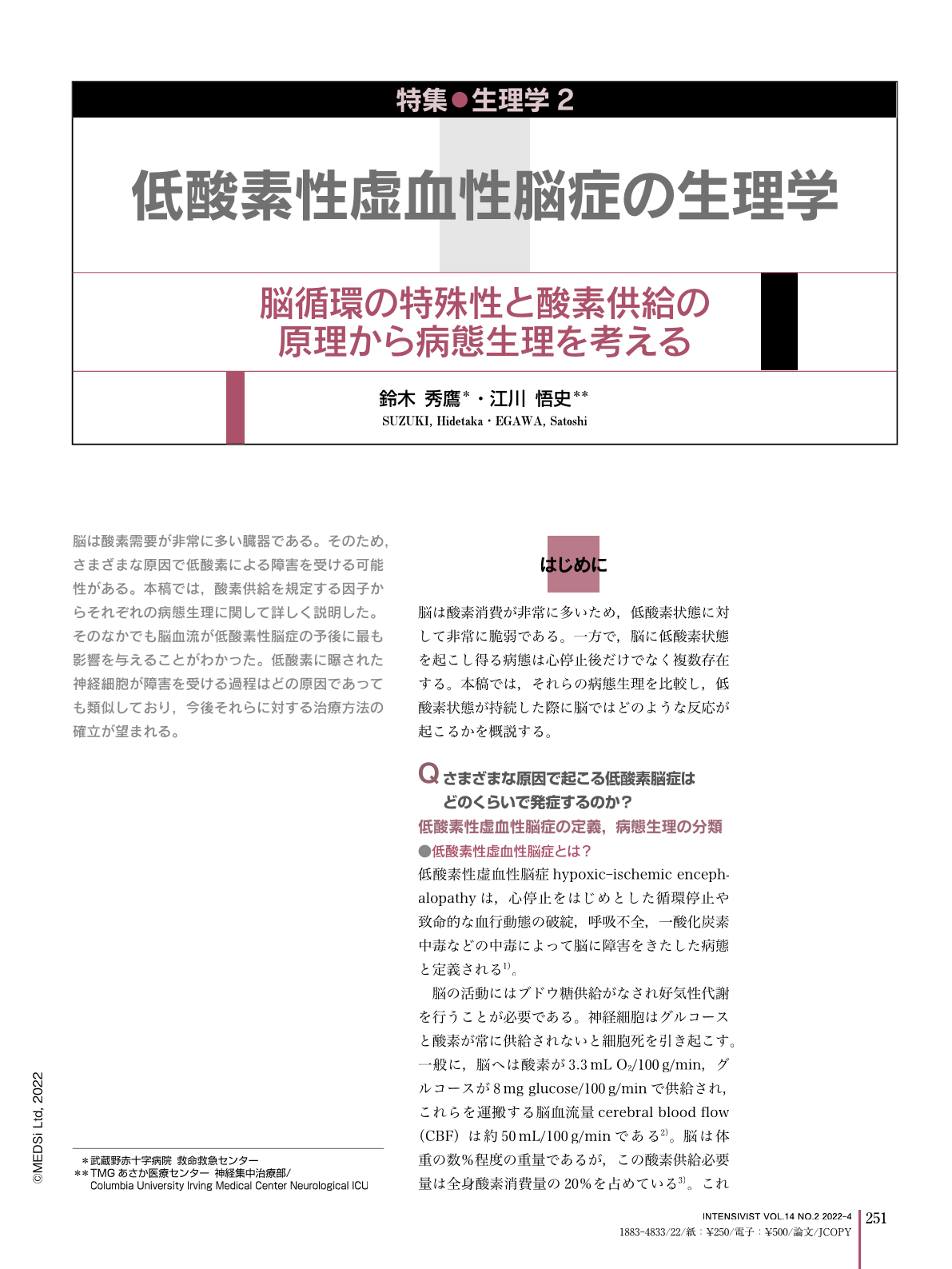Japanese
English
特集 生理学2
Part 1 神経
2.低酸素性虚血性脳症の生理学—脳循環の特殊性と酸素供給の原理から病態生理を考える
The physiology of hypoxic-ischemic encephalopathy
鈴木 秀鷹
1
,
江川 悟史
2,3
Hidetaka SUZUKI
1
,
Satoshi EGAWA
2,3
1武蔵野赤十字病院 救命救急センター
2TMGあさか医療センター 神経集中治療部
3Columbia University Irving Medical Center Neurological ICU
1Department of Emergency and Critical Care Medicine Japanese Red Cross Musashino Hospital
2Neurocritical Care Unit, TMG Asaka Medical Center
3Columbia University Irving Medical Center Neurological ICU
pp.251-264
発行日 2022年4月1日
Published Date 2022/4/1
DOI https://doi.org/10.11477/mf.3102200963
- 有料閲覧
- Abstract 文献概要
- 1ページ目 Look Inside
- 参考文献 Reference
脳は酸素需要が非常に多い臓器である。そのため,さまざまな原因で低酸素による障害を受ける可能性がある。本稿では,酸素供給を規定する因子からそれぞれの病態生理に関して詳しく説明した。そのなかでも脳血流が低酸素性脳症の予後に最も影響を与えることがわかった。低酸素に曝された神経細胞が障害を受ける過程はどの原因であっても類似しており,今後それらに対する治療方法の確立が望まれる。
The brain has a very high oxygen demand. Therefore, it can be damaged by hypoxia for a variety of reasons. The pathophysiology of each of the factors that regulate oxygen supply to the brain is described in detail. Of these, cerebral blood flow has the greatest impact on the prognosis of patients with hypoxic encephalopathy. The process by which neurons exposed to hypoxia are damaged is similar regardless of the cause, and it is hoped that new therapeutic approaches will be established in the future.

Copyright © 2022, MEDICAL SCIENCES INTERNATIONAL, LTD. All rights reserved.


